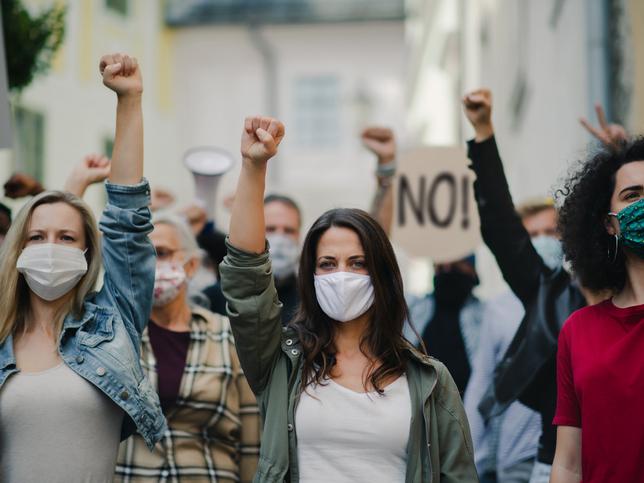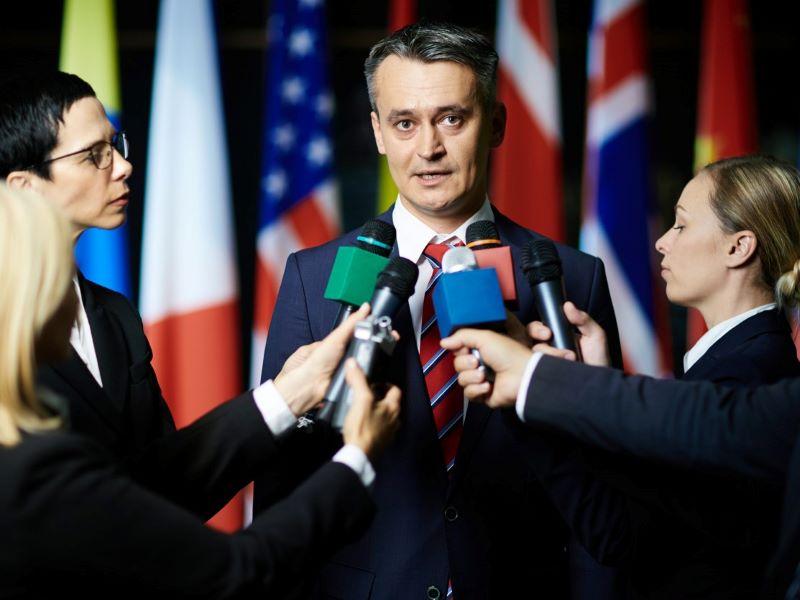Last week, the Varieties of Democracy Institute (V-Dem), which produces the largest global dataset on democracy with more than 30 million data points for 202 countries from 1789 to 2021, published its latest report. Its findings place what’s happening in Ukraine within a far wider global perspective. The report finds that the level of democracy enjoyed by the average global citizen in 2021 is down to 1989 levels. Thirty years of democratic progress appears to have been wiped out. Dictatorships are on the rise and govern 70 per cent of the world’s population. That’s 5.4 billion people who live without the basic protections afforded by the principles and values of democracy.
In 1949, the American philosopher Sidney Hook remarked that “the most curious phenomena of our time” was the manner in which totalitarian regimes sought to wrap themselves in the language of democracy. Maybe the most curious phenomena of today is the manner in which autocratic regimes no longer feel the need to hide behind a democratic façade.
Autocratisation appears to be mutating towards a bigger, bolder and more brazen form. But how can we understand what’s driving this process, not to mention what the problem is and who is to blame?
Luckily, the answer to these questions has already been provided. Last month, as Putin’s troops and tanks amassed on Ukraine’s border, the British politician Oliver Dowden travelled to Washington to explain exactly why democracy was under threat and what should be done.
The problem was “wokeism” and universities were to blame. Period.
- Talking taboos: how to create an open atmosphere for discussing difficult subjects
- Planning and facilitating quality discussions
- How to disagree about vaccination and manage other difficult discussions
“Universities, from which so much of this unthinking revisionism has emerged, have, of course, for decades been prey to left-wing excesses,” Mr Dowden said. “There has always been a tendency among cultural and educational elites to serve their own interests rather than to serve the public at large. But this ideology is now everywhere…It is a dangerous form of decadence. Just when our attentions should be focused on eternal foes, we seem to have entered this period of extreme introspection and self-criticism and it really does threaten to sap our societies of their own self-confidence.”
It is, of course, easy to reject such hyperbole. The fact that the speech was delivered at the right-leaning Heritage Foundation and chaired by the director of the Margaret Thatcher Center for Freedom makes it ripe for rejection, if not parody. If there’s a threat to democracy, then every bone in my body and cell in my brain tells me that it’s predatory markets, rampant individualism and the growing inequalities that have frayed the ties that bound democratic societies together.
So why did Dowden’s rather desperate attack on “social justice warriors”, “the politics of pronouns” and “decolonising mathematics” annoy me so much?
The answer came to me as I read through the aforementioned (and rather gloomy) V-Dem report. The key shift indicated in the hard data and evidence is one that highlights the growth of toxic polarisation and a decline in respect for counter arguments.
Political polarisation reached unprecedented global levels in 2021 to the extent that politics is increasingly defined in terms of “them and us”. Think Brexit, think Trump. The “‘footballification’ of politics” as LBC presenter James O’Brien has described it. Once the moral basis of anyone who disagrees with us is rejected, then democracy inevitably implodes.
“Once political elites and their followers no longer believe that political opponents are legitimate and deserve equal respect,” the V-Dem report concludes, “democratic norms and rules can be set aside to ‘save the nation’.”
To make this point is not to side in any way at all with Oliver Dowden and his theory of “democratic decadence”. And yet it is almost impossible not to make a connection between the V-Dem data and the potentially positive role of universities as sites of democratic socialisation.
Could it be that universities themselves need to find a way of reframing the corrosive debate and, through this, take control of the agenda?
Proactively shifting the discussion from one that focuses on “cancel culture” and “no platforming” to one that embraces critical positions and disruptive ideas surely chimes with the raison d’être of university life. Freedom of speech defined through a commitment to pluralism and embedded within the civic mission of universities provides a way of closing down Dowden-esque attacks.
Some students will gripe and grumble, petition and protest at the views and attitudes that others are allowed to declare, and debate will undoubtedly emerge. Good. That’s exactly how respect and understanding for the principles of democracy and the rights of others to disagree is forged. It’s learning-by-doing while being challenged by ideas that will stretch your thinking.
Discomfort in the realm of ideas is simply the price you pay for living in a democracy, and pluralism provides an antidote to radicalism. Promoting pluralism provides a way of leaving the Conservative Party obsessing about “culture wars” and “anti-woke” opinions when that particular ship may have already sailed. Universities will have already seen an opportunity to reinvigorate their role and standing while politicians flap like “catastrophe men” – to use a term of Sir Bernard Crick – not waving but drowning in storms of their own making.
But universities must themselves find the confidence to defend the values of pluralism and have too often wavered in this task. This is universities challenged. The alternative is that the government will continue in its plans to legislate for free speech on campus, which is itself an even more worrying threat to democracy.
Matthew Flinders is professor of politics and founding director of the Sir Bernard Crick Centre at the University of Sheffield, UK.
If you found this interesting and want advice and insight from academics and university staff delivered direct to your inbox each week, sign up for the THE Campus newsletter.




comment